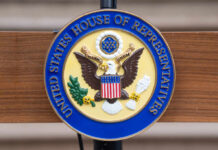
OPEC Secretary General Haitham Al Ghais vehemently disagreed on Monday with assessments made by the International Energy Agency (IEA) regarding the oil and gas industry and climate policy.
OPEC head accuses IEA of vilifying fossil fuel industry https://t.co/rByY5wDeiv pic.twitter.com/UiJGRqaOdZ
— Reuters (@Reuters) November 27, 2023
The disparity centers around a recent note published by the IEA, a prominent energy organization, stating that fossil fuel producers face an important decision between worsening the environmental situation or transitioning to cleaner sources of power.
According to the IEA, industry leaders must choose whether to intensify issues with global warming or move toward more sustainable options. Al Ghais, responding to the IEA’s note, said the watchdog’s portrayal of issues neglected vital matters like secure access to energy, affordability for all, and ensuring resources are available.
He emphasized that the IEA’s characterization of the industry as exclusively contributing to worsening the environmental situation was an oversimplification.
Disagreements between the Association of Oil-Exporting Countries and the Paris-based International Energy Agency have persisted over time, revolving around disputes on projected long-term demands for oil and investments to supply hydrocarbons.
The latest differences coincide with the United Arab Emirates, a significant OPEC producer, hosting the 28th COP U.N. climate summit. Al Ghais affirmed OPEC’s presence at the climate talks, signaling the organization’s commitment to engaging in climate-related discussion.
The IEA forecasts peak worldwide usage of fossil fuels by 2030, attributing it to the growing adoption of electric vehicles and China’s transition to cleaner sources of energy. OPEC, led by top oil exporter Saudi Arabia, challenges this projection, considering it “risky”, arguing that it could jeopardize energy security by discouraging new oil and gas developments.
Beyond reservations regarding projections of energy needs, the IEA’s critique of processes capturing carbon drew additional disagreement. In a statement published to its website, the IEA called on industries to truly commit to fulfilling demands and environmental targets — dismissing capturing carbon as an improbable solution.
This stance contradicts the views of the UAE and other Gulf producers of energy who advocate a transition to renewable energy sources, allowing fossil fuels to play a role in guaranteeing energy demands as sectors attempt to reduce their carbon footprints.
Al Ghais expressed regret regarding the IEA’s portrayal of technologies like utilizing and storing captured carbon (CCUS) as an “illusion,” citing their acknowledgment in United Nations Intergovernmental Panel on Climate Change reports.
He emphasized the intricacy of energy challenges, rejecting the notion of restricting solutions to a solely binary question. For instance, in the last year, OPEC+, a coalition of OPEC and countries like Russia, stopped using IEA data to determine the market situation.
Saudi Arabia, an important member of OPEC, also blamed the IEA for Washington’s selling of oil from its reserves, attributing it to the IEA’s initial expectation of a 3 million barrel per day decrease in Russian production because of the war in Ukraine.



























